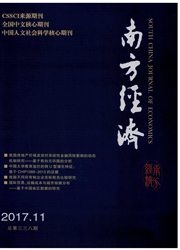

 中文摘要:
中文摘要:
本文以我国企业为样本,重点考察了组织文化、高管价值观和社会性管制对企业社会绩效的影响机制。同时,在模型中引入利益相关者优先度概念,考察了员工优先度和公众优先度两个维度在相关前因变量与企业社会绩效之间的中介作用。研究结果表明,(1)人本导向的组织文化对企业社会绩效的员工关系绩效具有直接正向影响,同时还会通过员工优先度间接影响员工关系绩效。(2)高管价值观对员工关系绩效和公众关系绩效没有直接效应,但却可以通过公众优先度间接影响公众关系绩效。(3)公众关系政府管制不直接影响公众关系绩效,但却可以通过公众优先度间接影响公众关系绩效。本研究的相关结论对于进一步的研究与企业管理实践均有一定价值。
 英文摘要:
英文摘要:
This paper reports on a study that contributes to our understanding of the determinants of corporate social perform- ance by focusing specifically on the role played by three strategically important variables, namely organizational culture, top management value and social regulation. Furthermore, this paper introduces stakeholder salience into the model, and reports respectively on the mediated role played by employee salience and public salience. Results suggest that, first, people-oriented organizational culture has a direct effect on employee relationship performance and is also found to have a significant mediated effect on emplyee relationship through employee salience. Second, top management value has no direct effect neither on employee relationship performance nor on public relationship performance, however, top management value has a mediated effect on public rela- tionship performance through public salience. Third, social regulation on public relationship has no direct effect but has a mediated effect on public relationship performance through public salience. The above results should be helpful to the future research and corporate management practice.
 同期刊论文项目
同期刊论文项目
 同项目期刊论文
同项目期刊论文
 期刊信息
期刊信息
